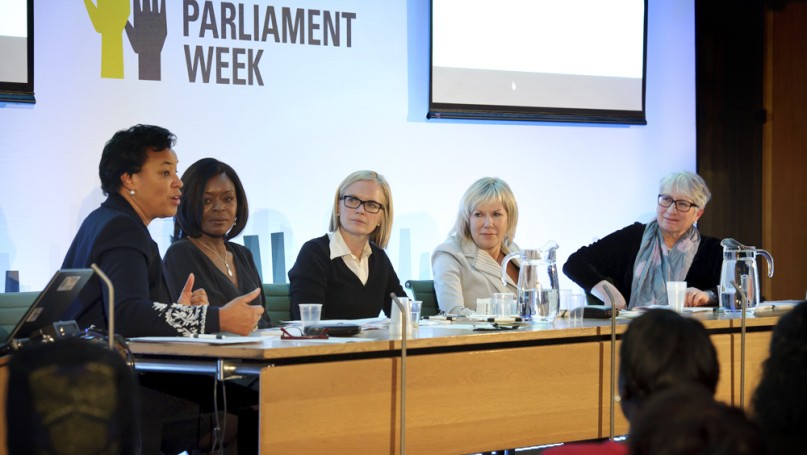
Intelligent Compassion: Feminist Critical Methodology in the Women’s International League for Peace and Freedom
By: Catia Confortini
New York: Oxford, 2012
One of the questions that students regularly ask in my introductory International Relations (IR) classes is how the theoretical work that they are reading in the classroom relates to the ‘real world’ – both referring to the ‘real world’ of global politics and the ‘real world’ of their lives and any practical application such theory might have to their professional success. These questions often tend to get louder and grumpier as we get more into critical readings – how do these critical perspectives reflect the ways that the world works? What can they tell us about navigating it?
While it is important to argue that IR theory, including critical theory, can be both practically and normatively prescriptive for change in the world, it is also important to demonstrate – both to students and to policy-makers ‘out there’ – the utility of that theory for analyzing what goes on in global politics, and in the lives of the people who are actors in global politics. This is the beauty of Catia Confortini’s Intelligent Compassion: not only does it show the ways that feminist theorizing can help to prescribe how advocacy in global politics should work, but it also demonstrates how it has worked.
Confortini’s book examines the Women’s International League for Peace and Freedom (WILPF), an international women’s peace organization founded in 1915; a founding date that makes it the oldest organization of its type in existence today. Particularly, Confortini’s book focuses on the operation of the organization between 1945 and 1975, while it was dealing with issues of disarmament, decolonization, and the Israel/Palestine conflict. As Confortini explains, WILPF, both a result of its strategies and its endurance, has become a fairly influential non-governmental organization in global politics, specifically in the context of the United Nations. Currently, WILPF comprises of thousands of members across more than thirty countries.
It is not that evolution, though, that is the primary focus of Confortini’s analysis: instead, it is an evolution whereby WILPF’s activism learned from and adapted to new understandings of feminist theory, new understandings of the exclusionary dimensions of past positions and practices, and new discomforts with the ideological tenets of the liberal world order in post-World War II international politics. Looking at those evolutions, Confortini notes that WILPF’s methods of critical reflection filtered the ideological shifts in world politics to shape its advocacy around the issues presented to it.
Confortini identifies this critical reflection as a feminist critical methodology, made up of deliberative inquiry and skeptical scrutiny. Building on Brooke Ackerly’s (2001) description of third world feminist social criticism, Confortini analyzes the potential for emancipatory agency in terms of pairing those ideas with WILPF International Chair Dorothy Hutchinson’s (1968) description of intelligent compassion. In so doing, Confortini demonstrates three key points in my view: the dynamism of feminist advocacy in global politics, the continuous nature of the (feminist) fight for global justice, and the relevance of feminist theorizing in understanding not only how the world should work but how it does work, and how it has worked.
In Confortini’s work, that world is not only the world of how WILPF women interact with their governments, the United Nations, and the international media, but also the world of how they interact with each other, and with other women who have needs related to WILPF’s advocacy. This was possible in Intelligent Compassion because Confortini paired in-depth archival research with careful interview work, where she was able to gain access to many of the key actors in the period that she engaged. As a result, the book demonstrates not only the applicability of theory to the macro-functioning of international institutions and non-governmental organizations in global politics, but also to the micro-functioning of the politics of organizations and of everyday life in global politics.
Those contributions in Intelligent Compassion benefit feminist IR theorizing by making it more clearly accessible and more clearly applicable. By extension, they benefit IR theorizing in similar ways. In providing those benefits, though, Intelligent Compassion reaches beyond academia to teach, and to learn from, feminist activism in global politics. It is useful, then, not only for theorists, scholars, and students, but for practitioners as well. That reach, especially with the level of theoretical depth and sophistication used in Intelligent Compassion, make it a model for the directions in which I think 21st century IR theorizing (and practice) should go.